
-
Find the right food for your petTake this quiz to see which food may be the best for your furry friend.Find the right food for your petTake this quiz to see which food may be the best for your furry friend.Featured products
 Adult 7+ Perfect Digestion Chicken, Whole Oats & Brown Rice Recipe Dog Food
Adult 7+ Perfect Digestion Chicken, Whole Oats & Brown Rice Recipe Dog FoodScience Diet's breakthrough nutrition supports ultimate digestive well-being & healthy microbiome for dogs age 7+
Shop Now Adult Healthy Cuisine Roasted Chicken, Carrots & Spinach Stew Dog Food
Adult Healthy Cuisine Roasted Chicken, Carrots & Spinach Stew Dog FoodDelicious roasted chicken paired with tender vegetables in a succulent stew
Shop Now Small & Mini Savory Stew with Chicken & Vegetables Dog Food
Small & Mini Savory Stew with Chicken & Vegetables Dog FoodA delicious complement to the nutrition of Science Diet Small & Mini 7+ dog food
Shop NowFeatured products Adult Savory Entrée Can Variety Pack Cat Food
Adult Savory Entrée Can Variety Pack Cat FoodPrecisely balanced nutrition with the delicious taste of savory minced chicken to help fuel the energy needs of cats during the prime of their life
Shop Now Adult 7+ Tender Tuna Dinner Cat Food
Adult 7+ Tender Tuna Dinner Cat FoodWith delicious chunks in a decadent gravy
Shop Now Hill's Science Diet Adult Perfect Weight Canned Cat Food Variety Pack, Vegetable & Chicken and Liver & Chicken
Hill's Science Diet Adult Perfect Weight Canned Cat Food Variety Pack, Vegetable & Chicken and Liver & ChickenFeline Adult Perfect Weight Variety Pack
Shop Now -
Dog
- Dog Tips & Articles
-
Health Category
- Weight
- Food & Environmental Sensitivities
- Urinary
- Digestive
- Joint
- Kidney
-
Life Stage
- Puppy Nutrition
- Adult Nutrition
- Senior Nutrition
Cat- Cat Tips & Articles
-
Health Category
- Weight
- Skin & Food Sensitivities
- Urinary
- Digestive
- Kidney
-
Life Stage
- Kitten Nutrition
- Adult Nutrition
Featured articles Do Dogs and Cats have Belly Buttons?
Do Dogs and Cats have Belly Buttons?Learn whether cats & dogs have belly buttons like humans, what the function is, and if there are any health concerns associated with it.
Read More Why Are Dogs and Cats So Cute?
Why Are Dogs and Cats So Cute?If waggy puppy dog tails and furry kitten yawns make you swoon, you're not alone. Why are cats so cute? And, dogs too! Let's find out!
Read More Does My Pet Hate Me?
Does My Pet Hate Me?Learn tips for bonding with your pet if you've ever thought, 'My dog doesn't like me, or 'Why do I have a standoffish cat?'
Read More -
Digestive health for dogs
Digestive health for dogs
What are dog digestive issues?
A digestive disorder is any health situation that prevents your dog from properly digesting food or alters the rate that food passes through their digestive tract. Don’t ignore the signs! If your furry friend is showing symptoms of digestive disorders, seek immediate advice from your veterinarian.
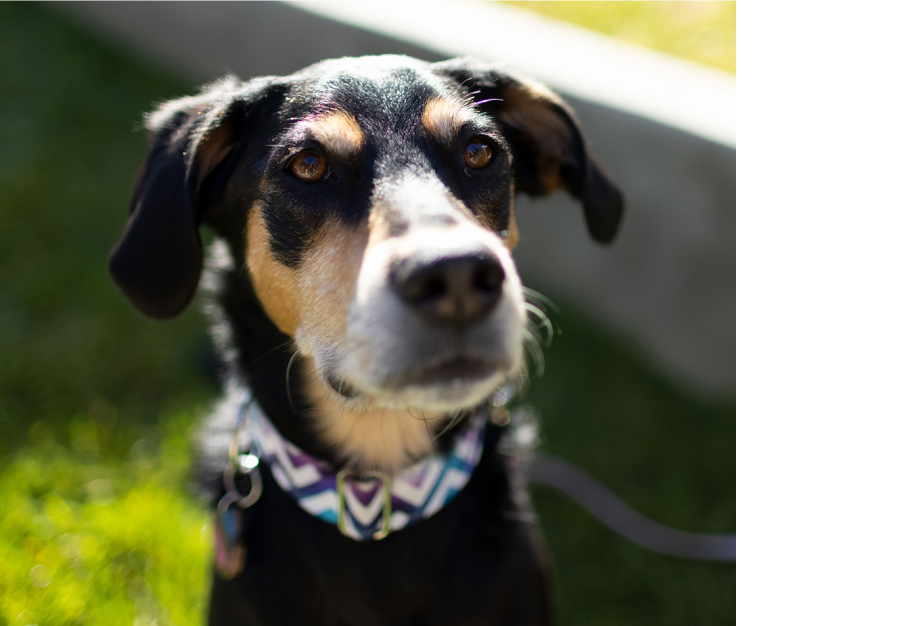
Know the signs of distress
Some signs of your dog’s digestive problems are easy (and unpleasant) to spot. Make sure you consult with your vet if your dog shows any of these signs:








Know the signs of distress
Some signs of your dog’s digestive problems are easy (and unpleasant) to spot. Make sure you consult with your vet if your dog shows any of these signs:








What causes dog digestive problems?
Digestive upsets can happen for a variety of reasons, and all of them can make your dog feel under the weather. Here are some of the more common causes of digestive problems in dogs.
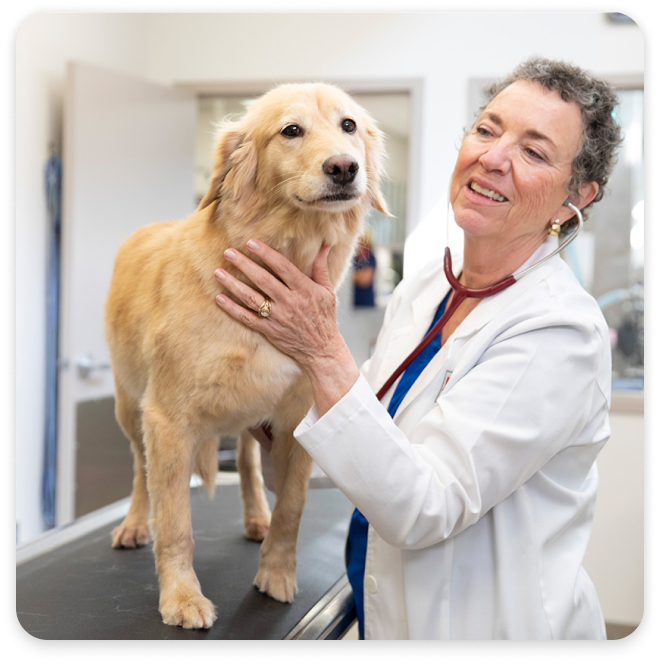

This is the most common cause of an ‘upset stomach’ in dogs. It usually consists of vomiting and diarrhea that begins suddenly but can just be diarrhea too. It can be caused by lots of things like eating something unsavoury (we all know our dogs love doing this!), parasites, viruses and foreign bodies, to name but a few.
Unlike the sudden onset upset we just mentioned, chronic enteropathies are slower to appear and tend to last a long time. Diarrhea and weight loss are common signs. Again, it can be caused by many different things such as adverse food reactions and genetics.
The colon is part of the large bowel and when this gets inflamed it’s called colitis. It’s usually very characteristic and most dogs show the same signs - looking like they urgently need to have a poop, they might strain to have a poop but not much comes out, and one of the classic signs of colitis is fresh blood and/or slimy mucus in the stools.
This is a serious condition in dogs and can be life-threatening. Common signs of pancreatitis are sudden onset vomiting, depression and lack of appetite. It’s also a very painful condition so your dog may be restless and adopt the ‘play bow’ position to try to ease the pain. If you have any concerns that your dog might have pancreatitis get them to the vet as soon as you can.
This complicated-sounding name describes a condition where dogs are lacking certain enzymes needed for digestion. The pancreas produces some of these and when they are lacking the food passes straight through without the dog being able to get at the nutrients. Dogs with EPI tend to be ravenously hungry but still lose weight and look in poor condition. Because they don’t digest fat well, their stools may be greyish in colour. Some breeds such as German shepherds are more prone to it than others. Usually supplementing the diet with the missing enzymes gives a good result.
Dogs can react badly to certain foods for a number of reasons and together we call these adverse food reactions. True food allergies are rarer than people think and they tend to be caused by proteins in foods such as beef and chicken. Food allergies can cause vomiting and diarrhea and also skin issues like itchiness.
The same as in humans, when dogs are constipated, they find pooping difficult and they might go to the toilet much less frequently. Constipation can be caused by lots of things. Eating bones can make the stools hard and difficult to pass, dehydration or a sluggish bowel will also mean that the stools are dry and difficult to shift.
How can you help?
First, if you suspect your dog is suffering from a digestive disorder, talk to your vet about treatments that may be able to help. You can further help your dog by reducing the amount of stress triggers in their environment with some of these suggestions:
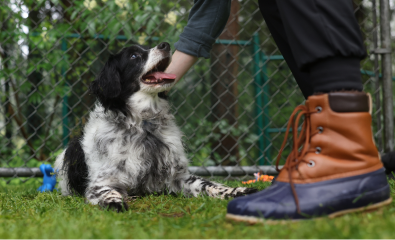

Stick with a routine
Dogs love predictability. Knowing they can anticipate when you’ll arrive home, when meals will appear and when it’s time for a walk will help keep your dog’s anxiety to a minimum.
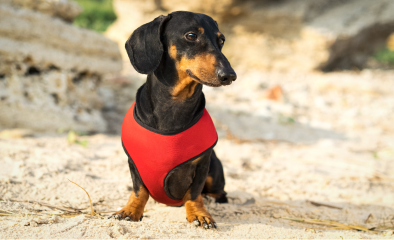

Accessorize
There are a variety of products on the market intended to help calm your dog. Ask your veterinarian for a recommendation that could help address your dog’s stress response in anxiety-inducing situations.
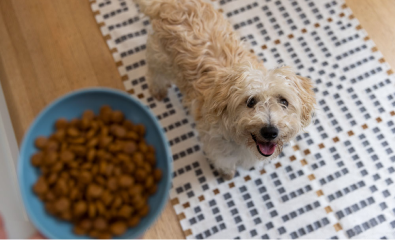

Consider their nutrition
Foods made with highly digestible ingredients can be gentle on upset tummies. Ask your veterinarian about switching your dog’s food and how to do it without upsetting your dog’s stomach any further.
How can you help?
First, if you suspect your dog is suffering from a digestive disorder, talk to your vet about treatments that may be able to help. You can further help your dog by reducing the amount of stress triggers in their environment with some of these suggestions:


Stick with a routine
Dogs love predictability. Knowing they can anticipate when you’ll arrive home, when meals will appear and when it’s time for a walk will help keep your dog’s anxiety to a minimum.


Accessorize
There are a variety of products on the market intended to help calm your dog. Ask your veterinarian for a recommendation that could help address your dog’s stress response in anxiety-inducing situations.


Consider their nutrition
Foods made with highly digestible ingredients can be gentle on upset tummies. Ask your veterinarian about switching your dog’s food and how to do it without upsetting your dog’s stomach any further.
Related products

Specially formulated to support dogs' weight loss, weight maintenance and joint health

Supports weight loss and maintenance

Help dogs quickly and naturally lose weight by activating their unique metabolism

Support for your dog’s urinary health
Related articles

You feed tasty and nutritious dog food, yet your dog only sniffs and licks at it. It’s time for the next meal, but the previous meal still isn’t finished. You might have a finicky dog!

It's a tasty treat, but is pineapple safe for dogs? Discover the pros and cons of feeding your dog pineapple and how to do it safely.
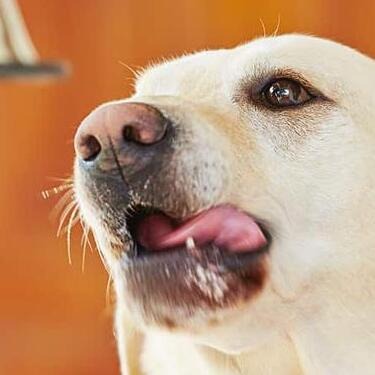
It's common for dogs to eat faster than humans, but learn why exactly some dogs might eat too fast and any health issues that can come up because of it.

Proper nutrition for your pregnant or nursing dog is vital to her and her puppy's health. Learn what you should do provide her with the proper nutrients.

